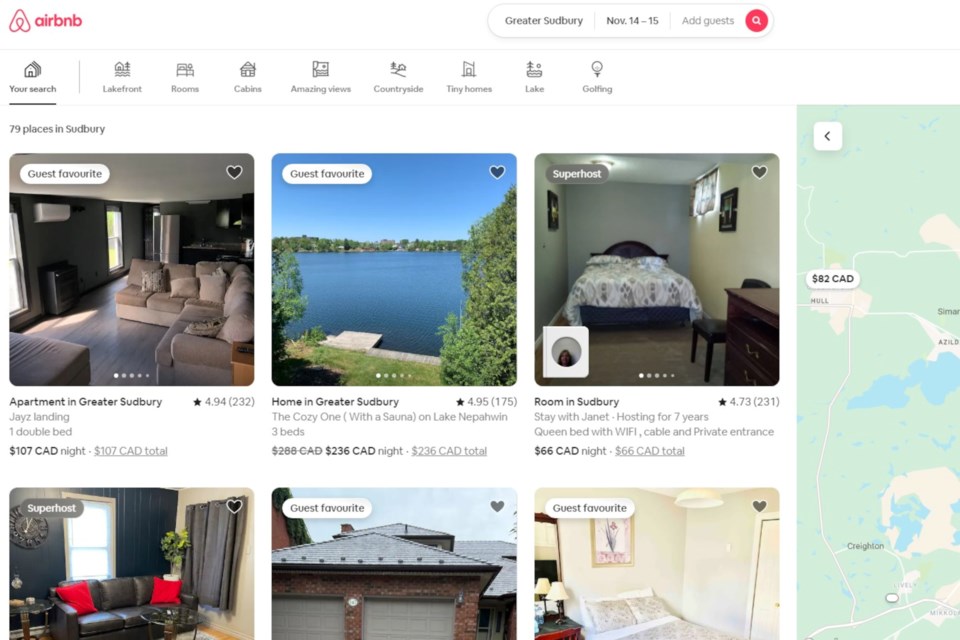The city is one step closer to requiring that property owners register short-term rentals with the city, with an associated bylaw slated to be the centrepiece of an upcoming public hearing.
A unanimous city council approved resolutions to that effect during last week’s finance and administration committee meeting.
There are at least 439 short-term rentals in Greater Sudbury, according to a count of online listings the city conducted last year, most of which listed on Airbnb.
In last week’s report by city senior planner Ed Landry, the city defines short-term rentals as, “A use of all or part of any dwelling unit where accommodation is provided in exchange for payment for not greater than 28 consecutive days, but does not include a hotel, shared housing, institutional use, bed and breakfast, boarding house dwelling, commercial tourist facility, camping ground, motel, or garden suite.”
Due to the low number of formal complaints against short-term rentals (one was cited in last year’s report), and the fact public nuisances and community safety issues are covered in other existing bylaws, Landry’s report did not recommend a licensing program.
Mayor Paul Lefebvre requested the report in a motion to city council in August 2023, at which time he clarified that his intent was for the city to get a firmer grasp on what’s out there.
“It is something that is a burgeoning industry, and right now we don’t have any way to measure this,” he said at the time. “The point of this motion is not to stop this, but to ensure we have the proper measures to be able to follow this.”
The bylaws, should they pass, will ensure the city maintains a “publicly accessible register of short-term rentals enforced by bylaw services and the Greater Sudbury Police Service and the city would be able to impose fines under the provincial offenses act for any contravention of the bylaw,” Landry said.
The only requirement the city included in the proposed bylaw amendment coming up for a public hearing was for registered properties serviced by private sewage disposal systems to provide a record of a septic system permit issued by a public health unit.
In the definition of short-term rentals, it’s also stipulated that they will be permitted in any dwelling unit, and that the duration of any one individual client’s stay must not exceed 28 days.
This points to a 28-day limit, and that only short-term rentals within dwelling units are allowed, which would then exclude such things as backyard campers outside of registered campgrounds.
Contravention of these stipulations will be investigated on a complaint basis, Landry said, describing the registration process as “the next step in the regulation of short-term rentals prior to a licensing regime.”
The bylaw’s creation will be accompanied by an education campaign to make sure the community is aware of it, city Corporate Security and By-Law Services manager Stefany Mussen told city council when the previous report on the subject was tabled in November 2023.
Along with highlighting the ins and outs of the upcoming bylaw in this education campaign, the city will also include information about related bylaws and requirements, such as building codes, to help arm renters with the information they need to make complaints to the city.
Tyler Clarke covers city hall and political affairs for Sudbury.com.
